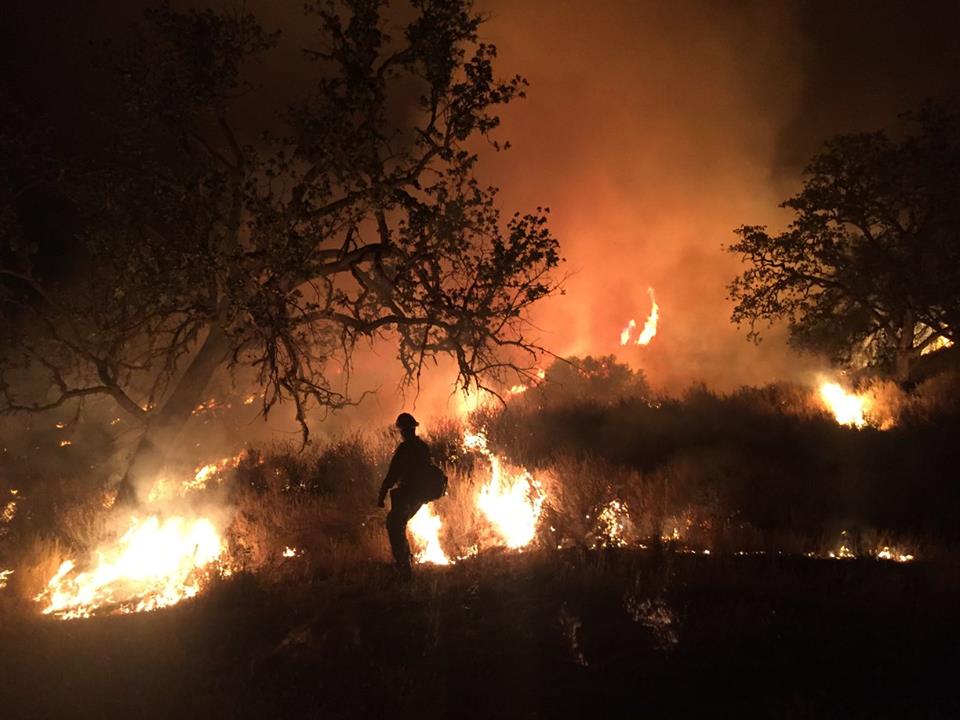By April Charlton
Contributing Writer
The oil industry is here to stay, at least for the next three decades, and Santa Barbara County needs to make rational decisions about it, an economist said June 21 at a forum in Buellton.
“I’m not saying we should have oil or not have oil,” said Peter Rupert, executive director of the UCSB Economic Forecast Project. “I’m saying we should weigh the costs, like any good decision maker.”
The forum, called “Energy: Can’t Live With It, Can’t Live Without It,” was co-hosted by the Santa Barbara Foundation and the Economic Alliance of Northern Santa Barbara County.
Rupert said good choices must be made on facts, such as how many people would be affected if the county were to lose the property tax revenue it receives annually from the oil and gas industry.
“No one wants to think about this,” said Rupert, who was the event’s keynote speaker.
Rupert also pointed out to the crowd of about 100 people at the Santa Ynez Valley Marriott that 24 percent of the tax revenue from the oil and gas industry in Santa Barbara County goes to schools.
Rupert told the room that if oil prices continue to remain high — the current price is $229 a barrel —the county is expected to become a net petroleum producer within the next 10 years. He also said the dependency on gas-powered cars will continue, although it will diminish as battery and electric vehicles continue to surge as the No. 1 consumer-preferred car.
“The gas-powered vehicle isn’t going away by 2050, but it isn’t growing,” Rupert said.
He also spoke about what he called a marriage between the economy and energy in Santa Barbara County, but panelist Steve Lavagnino, the county’s 5th District supervisor, disagreed with the analogy.
“The reality is, there is no marriage,” Lavagnino said about the creation of land-use policies to allow oil projects to move forward in the county; they rarely do. “We’re divorced.”
Lavagnino said he’d be an advocate for any type of renewable energy project, such as solar or wind, that creates jobs and boosts property tax revenue. He also said he’s proud to support oil projects that have come to the Board of Supervisors for approval — not because corporations would get rich but because of the economics created for the county and its residents and business owners.
“I support it because I see what happens when the money comes into the county,” Lavagnino said, noting the projects also bring jobs and a safety net for the area. He pointed out that he represents the poorest of the county’s five supervisorial districts — the Fifth District, which includes Santa Maria.
“I get that we need to transition away from fossil fuel, but it’s not going to happen in the next 10 years,” he added. “Obviously it’s not a perfect industry, but there are mistakes made in every industry.”
First District Supervisor Das Williams of Santa Barbara, also a panelist, acknowledged that oil has played a huge role in quality-of-life changes for Americans, including local people, but also noted the country is in a time of transition when it comes to energy, which he believes needs to be embraced locally.
“People should be doing everything they can do to reduce their demand (for oil),” Williams said. “That doesn’t mean oil will go away tomorrow or the jobs will go away tomorrow. Our future should be in cleaner sources of energy and ones that should help us economically.”
Kenneth Kahn, tribal chairman of the Santa Ynez Band of Chumash Indians, was the third panel member. He pointed to the tribe’s culture of embracing conservation.
“It’s a way of life for us,” Kahn said, noting the tribe uses alternative energy whenever possible, such as 20 percent solar for its housing, commercial and government buildings in the Santa Ynez Valley.
He also noted that the lights are on “seven days a week, 24 hours a day, 365 days a year” at the Chumash Casino Resort.
“We want to be responsible as possible when approaching some of these issues,” Kahn said. “We certainly are dependent on other energy solutions.”
He noted the tribe uses large buses to transport its employees to and from the Santa Ynez Valley, as many people have seen, and said the Chumash “still have plenty of need for gas consumption.”
“Again, we are trying to find a balance,” Kahn said.
Santa Barbara Foundation President and Chief Executive Officer Ron Gallo reminded those in the audience that any time there’s an economic turnover and changes are made, it will affect the energy industry.
“I don’t want to have to go up to them (oil and gas employees) tomorrow and say they have to work at McDonald’s because these facilities are closing,” Gallo said if the county loses the industry and the head-of-household jobs it brings.
Rupert’s presentation is expected to be available soon for viewing at www.econalliance.org, although at press time the site bore only a message that it was “under renovation.”
For more information, call Econ Alliance Executive Director Jenelle Osborne at 805-452-7574.





